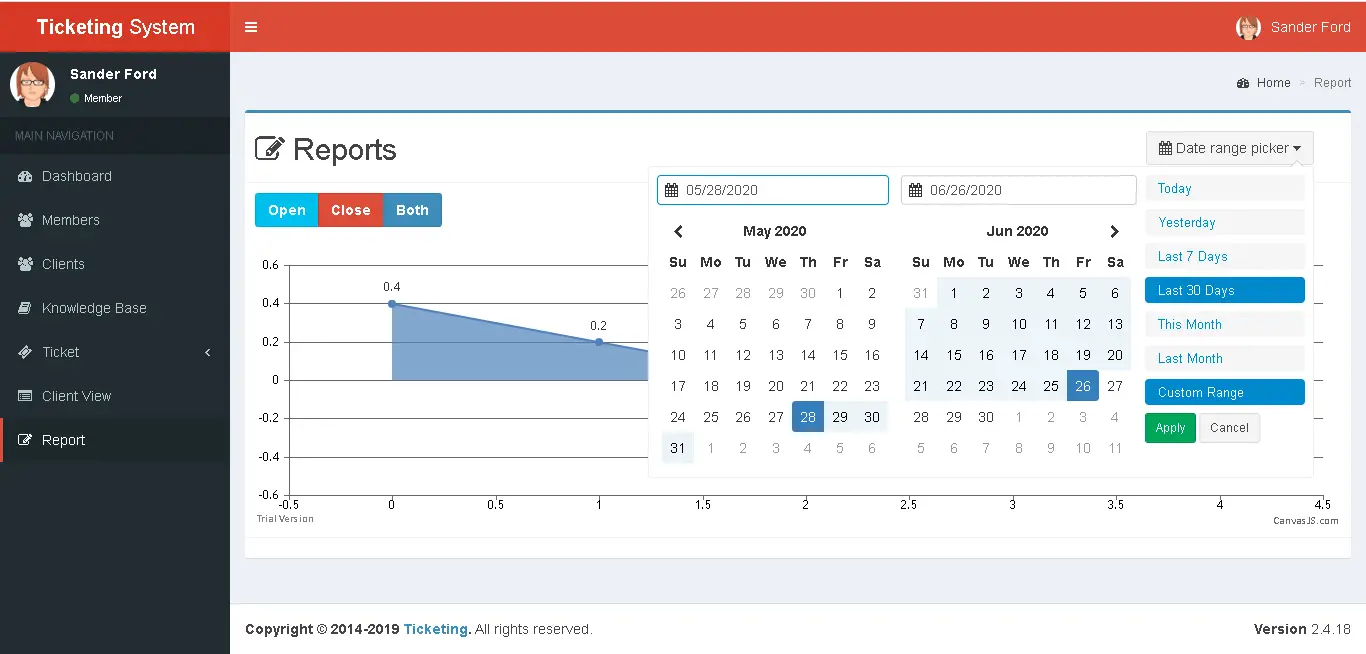Movie Ticket Booking Database Design
Are you a movie buff who loves the experience of booking tickets online? Have you ever wondered how the process of movie ticket booking actually works? Behind the scenes, a complex database system is responsible for managing movie schedules, available seats, and customer information. This is where database design comes into play.
A well-designed database is the foundation of any movie ticket booking system, ensuring that the process of booking tickets is smooth and efficient for customers, while also providing theater owners with accurate data on their inventory and sales. In this blog post, we’ll explore the importance of a well-designed database for movie ticket booking systems, and take a closer look at the key components of a movie ticket booking database.
About the Project
Table of Contents
A web-based movie ticket booking system is an online platform that allows users to reserve or purchase tickets for movies, typically at a cinema or theater. This system enables users to select their preferred movie, show time, seat number, and the number of tickets they want to buy. Customers can also pay for their tickets online through various payment methods, such as credit cards, mobile payments, or other online payment gateways.
A movie ticket booking system offers several benefits, including the convenience of booking movie tickets from anywhere, anytime, and the ability to select specific seats, ensuring a better movie-watching experience. It also streamlines the ticket booking process, reducing wait times and the need to stand in long queues at the cinema or theater. With the rise of online booking and e-ticketing systems, movie ticket booking websites and apps have become increasingly popular among moviegoers, making the movie-watching experience more enjoyable and hassle-free. To develop such a system, a well-designed database is a crucial component that ensures the system’s smooth functioning and efficient management of movie ticket sales and customer information.
Importance of Database Design
The importance of good database design in the development of a movie ticket booking system cannot be overstated. A well-designed database serves as the foundation of the system and can make the difference between a robust, efficient and scalable system, and a system that is slow, error-prone and difficult to maintain. Good database design ensures data accuracy, consistency and completeness, and makes it easier for developers to write clean and efficient code.
With a movie ticket booking system, a good database design helps ensure that customers can easily find and book available seats, while also allowing the system to keep track of important details such as showtimes, movie schedules, customer information and payment details. Good database design also plays a critical role in ensuring the system can scale to accommodate increasing demand, as more customers begin to use the system. In addition, it can help reduce the risk of data corruption or loss, making it easier for developers to recover data in case of system failures or crashes. In summary, good database design is a critical component of any movie ticket booking system, and can help ensure the system is reliable, efficient and able to grow and evolve over time.
Database Tables

A Movie Ticket Booking Database Design is an essential system for any business operating in the movie industry. It facilitates the management of information about movies, theaters, showtimes, bookings, customers, and payments. To achieve this, the system requires several database tables that store information about the different entities in the system. The tables include tbl_movie, tbl_theater, tbl_showtime, tbl_seat, tbl_booking, tbl_customer, tbl_payment, and tbl_user. These tables are interconnected through primary and foreign keys to ensure that data is organized and easily retrievable. The movie ticket booking database design is critical in providing a seamless and efficient ticket booking experience for customers and streamlining the business operations of movie theaters.
Here is a possible database design for a movie ticket booking system:
tbl_movie – stores information about each movie, such as its title, release date, duration, genre, and rating.
- movie_id (primary key) – a unique identifier for each movie
- title – the movie’s title
- release_date – the movie’s release date
- duration – the movie’s duration in minutes
- genre – the movie’s genre
- story_line – brief information about the movie
- poster – the cover image of the the movie
- film_director – name of the director(s)
- rating – the movie’s rating (e.g. G, PG, PG-13, R, etc.)
Create SQL Statement – the statement below is used to create the tbl_movie, copy the sql statement and paste it in the sql manager/tab of your phpmyadmin.
CREATE TABLE `tbl_movie` ( `movie_id` int(11) NOT NULL, `title` varchar(255) NOT NULL, `release_date` date NOT NULL, `duration` int(11) NOT NULL, `genre` varchar(255) NOT NULL, `story_line` text DEFAULT NULL, `poster` varchar(255) DEFAULT NULL, `film_director` varchar(255) DEFAULT NULL, `rating` varchar(10) NOT NULL ) ENGINE=InnoDB DEFAULT CHARSET=utf8mb4;
tbl_theater – stores information about each theater, such as its name, location, and capacity.
- theatre_id (primary key) – a unique identifier for each theater
- name – the theater’s name
- location – the theater’s location (e.g. city, state)
- capacity – the theater’s maximum capacity
Create SQL Statement – the statement below is used to create the tbl_theater, copy the sql statement and paste it in the sql manager/tab of your phpmyadmin.
CREATE TABLE `tbl_theater` ( `theatre_id` int(11) NOT NULL, `name` varchar(255) NOT NULL, `location` varchar(255) NOT NULL, `capacity` int(11) NOT NULL ) ENGINE=InnoDB DEFAULT CHARSET=utf8mb4;
tbl_showtime – stores information about each movie showing, including the movie, theater, start time, and end time.
- showtime_id (primary key) – a unique identifier for each showtime
- movie_id (foreign key) – a reference to the movie being shown
- theater_id (foreign key) – a reference to the theater where the movie is being shown
- start_time – the start time of the showing
- end_time – the end time of the showing
- amount – the amount or price of the show or movie.
Create SQL Statement – the statement below is used to create the tbl_showtime, copy the sql statement and paste it in the sql manager/tab of your phpmyadmin.
CREATE TABLE `tbl_showtime` ( `showtime_id` int(11) NOT NULL, `movie_id` int(11) NOT NULL, `theater_id` int(11) NOT NULL, `start_time` datetime NOT NULL, `end_time` datetime NOT NULL, `amount` decimal(10,2) NOT NULL ) ENGINE=InnoDB DEFAULT CHARSET=utf8mb4;

tbl_seat – stores information about each seat in a theater, including its row, number, and availability.
- seat_id (primary key) – a unique identifier for each seat
- theater_id (foreign key) – a reference to the theater where the seat is located
- row – the seat’s row number
- number – the seat’s number within the row
- available – a Boolean value indicating whether the seat is available for booking
Create SQL Statement – the statement below is used to create the tbl_seat, copy the sql statement and paste it in the sql manager/tab of your phpmyadmin.
CREATE TABLE `tbl_seat` ( `seat_id` int(11) NOT NULL, `theater_id` int(11) NOT NULL, `row_num` int(11) NOT NULL, `seat_num` int(11) NOT NULL, `available` tinyint(1) DEFAULT 1 ) ENGINE=InnoDB DEFAULT CHARSET=utf8mb4;
tbl_booking – stores information about each ticket booking, including the showtime, seat, and customer information.
- booking_id (primary key) – a unique identifier for each booking
- showtime_id (foreign key) – a reference to the showtime for which the ticket was booked
- seat_id (foreign key) – a reference to the seat that was booked
- customer_name – the customer’s name
- customer_email – the customer’s email address
- customer_phone – the customer’s phone number
- booking_date – the date and time when the booking was made
- booking_status – the status of the booking (e.g. confirmed, canceled, etc.)
- booking_code – a unique code generated for each booking
Create SQL Statement – the statement below is used to create the tbl_booking, copy the sql statement and paste it in the sql manager/tab of your phpmyadmin.
CREATE TABLE `tbl_booking` ( `booking_id` int(11) NOT NULL, `showtime_id` int(11) DEFAULT NULL, `seat_id` int(11) DEFAULT NULL, `customer_name` varchar(255) DEFAULT NULL, `customer_email` varchar(255) DEFAULT NULL, `customer_phone` varchar(20) DEFAULT NULL, `booking_date` datetime DEFAULT NULL, `booking_status` varchar(50) DEFAULT NULL, `booking_code` varchar(50) DEFAULT NULL ) ENGINE=InnoDB DEFAULT CHARSET=utf8mb4;
tbl_customer – stores information about each customer, including their name, email address, and phone number.
- customer_id (primary key) – a unique identifier for each customer
- last_name – the customer’s last name
- first_name – the customer’s first name
- middle_name – the customer’s middle name
- email – the customer’s email address
- phone – the customer’s phone number
- profile_picture –an avatar is a graphical representation of a user or the user’s character or persona.
- proof_of_identity – this is a document that the user will upload to verify it’s identity.
- account_status – a Boolean indicating if the account is active or not.
- processed_by – the system user or staff that verifies the account of the customer.
Create SQL Statement – the statement below is used to create the tbl_customer, copy the sql statement and paste it in the sql manager/tab of your phpmyadmin.
CREATE TABLE `tbl_customer` ( `customer_id` int(11) NOT NULL, `last_name` varchar(50) DEFAULT NULL, `first_name` varchar(50) DEFAULT NULL, `middle_name` varchar(50) DEFAULT NULL, `email` varchar(100) DEFAULT NULL, `phone` varchar(20) DEFAULT NULL, `profile_picture` varchar(100) DEFAULT NULL, `proof_of_identity` varchar(100) DEFAULT NULL, `account_status` tinyint(1) DEFAULT NULL, `processed_by` int(11) DEFAULT NULL ) ENGINE=InnoDB DEFAULT CHARSET=utf8mb4;
tbl_payment – stores information about each payment, including the booking it is for, the payment method, the amount paid, and the payment status.
- payment_id (primary key) – a unique identifier for each payment
- booking_id (foreign key) – a reference to the booking
- total_amount – amount paid by the customer
- payment_method – cash, card, checks, debit card, credit card, mobile payments, etc.
- date – payment date
Create SQL Statement – the statement below is used to create the tbl_payment, copy the sql statement and paste it in the sql manager/tab of your phpmyadmin.
CREATE TABLE `tbl_payment` ( `payment_id` int(11) NOT NULL, `booking_id` int(11) DEFAULT NULL, `total_amount` decimal(10,2) DEFAULT NULL, `payment_method` varchar(50) DEFAULT NULL, `payment_date` datetime DEFAULT NULL ) ENGINE=InnoDB DEFAULT CHARSET=utf8mb4;
tbl_user – The users table would store information about the users of the movie ticket system, such as their name, contact details, and location. The user_id column would be a unique identifier for each user, and the registration_date column would record the date and time when the user registered for the system.
- user_id: This field is the primary key of the users table and is used to uniquely identify each user. It could be an auto-incrementing integer or a string, such as a UUID.
- first_name: This field stores the first name of the user.
- last_name: This field stores the last name of the user.
- email: This field stores the email address of the user. It could be used as a unique identifier for the user, as well as for communication with the user.
- password: This field stores the password for the user’s account. It is recommended to store the password in an encrypted format, rather than in plain text.
- phone: This field stores the phone number of the user.
- address: This field stores the street address of the user.
Create SQL Statement – the statement below is used to create the tbl_user, copy the sql statement and paste it in the sql manager/tab of your phpmyadmin.
CREATE TABLE `tbl_user` ( `user_id` int(11) NOT NULL, `first_name` varchar(50) NOT NULL, `last_name` varchar(50) NOT NULL, `email` varchar(100) NOT NULL, `password` varchar(255) NOT NULL, `phone` varchar(20) NOT NULL, `address` varchar(255) NOT NULL, `registration_date` timestamp NOT NULL DEFAULT current_timestamp() ) ENGINE=InnoDB DEFAULT CHARSET=utf8mb4;
Summary
A Movie Ticket Booking Database Design is an essential system for any business operating in the movie industry. It facilitates the management of information about movies, theaters, showtimes, bookings, customers, and payments. To achieve this, the system requires several database tables that store information about the different entities in the system. The tables include tbl_movie, tbl_theater, tbl_showtime, tbl_seat, tbl_booking, tbl_customer, tbl_payment, and tbl_user. These tables are interconnected through primary and foreign keys to ensure that data is organized and easily retrievable. The movie ticket booking database design is critical in providing a seamless and efficient ticket booking experience for customers and streamlining the business operations of movie theaters.
Please watch the video tutorial that will be posted on our YouTube Channel.
Readers are also interested in:
Bus Ticket Booking System Conceptual Framework
Bus Ticket Booking System in Laravel Use Case Diagram
You may visit our Facebook page for more information, inquiries, and comments. Please subscribe also to our YouTube Channel to receive free capstone projects resources and computer programming tutorials.
Hire our team to do the project.

